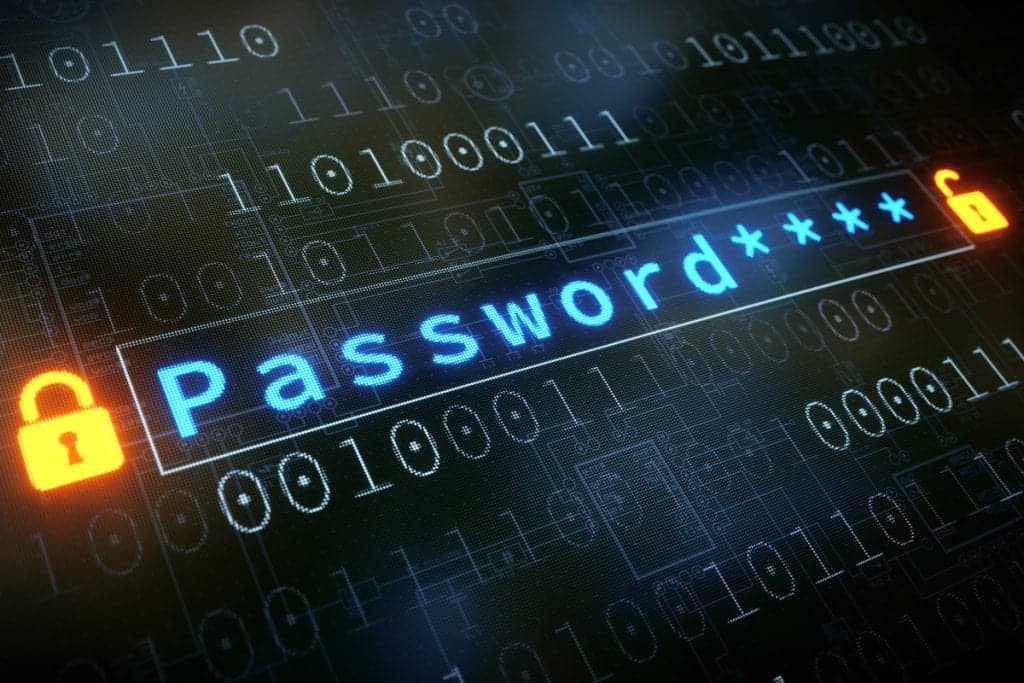Cybersecurity protects your business from devastating cyber threats, costly data breaches, and operational disruptions that can destroy years of hard work. Modern businesses face:
- Safeguarding critical business data from unauthorized access
- Avoiding devastating financial impact from cyberattacks
- Ensuring uninterrupted operations during digital attacks
- Preserving brand reputation and customer trust
- Meeting legal and regulatory compliance requirements
- Strengthening competitive position against adversaries
- Mitigating third-party vendor security risks
- Enabling safe digital transformation initiatives
- Enhancing employee productivity through secure systems
- Supporting secure remote work environments
- Providing 24/7 threat monitoring and detection
- Improving data management and backup systems
- Strengthening access control and authentication
- Reducing cyber insurance premiums significantly
- Delivering peace of mind for business owners
Every day, cybercriminals target businesses like yours, aiming at accessing sensitive information and extorting money from users. A single successful breach can cost your business hundreds of thousands of dollars, destroy customer relationships built over decades, and even force permanent closure. The practice of protecting systems isn’t optional anymore, it’s essential for survival in today’s digital landscape.
We help local businesses implement comprehensive cybersecurity measures that prevent these devastating outcomes while supporting growth.
Our award-winning cybersecurity services have protected businesses for over 25 years with 24/7 monitoring and rapid response.
15 Benefits of Cyber Security
Modern businesses need cybersecurity to survive and thrive in our connected world. Here are the key advantages of implementing robust security measures:
1. Safeguarding Critical Business Data
✔️ Your customer data, financial records, and proprietary business intelligence represent your company’s most valuable assets. Cybersecurity creates multiple layers of protection around this sensitive data, preventing cybercriminals from gaining unauthorized access to confidential information that keeps your business competitive.
Comprehensive data protection includes encryption for data at rest and in transit, access management controls that limit who can view specific information, and backup systems that ensure business continuity even if primary systems are compromised.
2. Avoiding Devastating Financial Impact
A single data breach can devastate small businesses with costs including recovery expenses, legal fees, regulatory fines, and lost revenue. Many small businesses never recover from major cyberattacks, with the majority struggling to maintain operations after significant security incidents.
Beyond immediate recovery costs, businesses face regulatory fines, legal fees, customer notification expenses, credit monitoring services, and lost revenue during downtime. Investing in cybersecurity costs far less than paying these consequences after an attack.
3. Ensuring Uninterrupted Operations
Business operations depend on reliable access to digital systems, applications, and data. Malware infections, ransomware attacks, and system intrusions can halt normal business activities for days or weeks, destroying productivity and revenue.
Effective cybersecurity measures include robust firewall protection, regular system updates, and incident response plans that minimize disruption when threats are detected. This ensures your team can focus on serving customers rather than dealing with security emergencies.
4. Preserving Brand Reputation and Trust
Customer trust takes years to build but can be destroyed overnight by a security breach revealing sensitive information. When clients know their personal data and confidential business details are protected by professional security measures, they’re more likely to continue working with you and recommend your services.
⚖️ A strong security posture demonstrates your commitment to protecting customer interests, which directly impacts customer retention and new business acquisition in competitive markets.
5. Meeting Legal and Regulatory Requirements
Many industries require specific cybersecurity standards to protect customer information and maintain professional licenses. Healthcare providers must comply with HIPAA regulations, financial services need PCI DSS compliance, and legal firms face state bar association requirements for client data protection.
Failing to meet these regulatory standards can result in significant fines, license suspension, and legal liability that threatens your ability to operate. Proper cybersecurity ensures you stay compliant while avoiding costly penalties.
6. Strengthening Competitive Position
Your intellectual property, client lists, pricing strategies, and business processes give you competitive advantages that attackers want to steal or destroy. Industrial espionage through cyber means is increasingly common, with competitors or foreign entities seeking to gain business intelligence.
Robust security controls protect these critical assets while ensuring you can safely innovate and grow without fear of having proprietary information compromised by malicious actors.
7. Mitigating Third-Party Vendor Risks
Modern businesses rely on numerous vendors, suppliers, and partners who may have access to your systems or data. Each connection creates potential vulnerabilities that cybercriminals can exploit to reach your network through trusted relationships.
Effective vendor risk management includes security assessments, contractual requirements for cyber hygiene, and monitoring of third-party access to ensure external partners don’t become weak links in your security chain. The Cybersecurity and Infrastructure Security Agency provides guidelines for managing third-party cybersecurity risks.
8. Enabling Digital Transformation
Cloud services, mobile applications, and digital tools can dramatically improve efficiency and customer service, but only if implemented securely. Many businesses avoid beneficial technologies due to security concerns, limiting their growth potential.
✔️ Proper cybersecurity frameworks allow you to safely adopt new technologies, leverage cloud platforms, and implement digital solutions that modernize operations while maintaining protection against emerging threats.
9. Enhances Employee Productivity
When systems work reliably without malware infections, phishing interruptions, or security incidents, employees can focus on productive work rather than dealing with technology problems. Security tools prevent many common issues that slow down daily operations.
Automated security measures handle routine protection tasks in the background, while user-friendly authentication systems provide necessary access without creating barriers to efficient workflow.
10. Enables Secure Remote Work
📌 Remote and hybrid work environments create new security challenges as employees access business systems from home networks, personal devices, and public internet connections that may lack enterprise-grade protection.
Comprehensive endpoint security, VPN connections, and cloud security measures ensure remote workers can access needed resources safely while maintaining the same level of protection as office-based operations.
11. Provides 24/7 Threat Monitoring
Cyber threats don’t follow business hours, with many attacks occurring during nights and weekends when businesses are least prepared to respond. Continuous monitoring systems watch for suspicious activity, malicious software installations, and unauthorized access attempts around the clock.
Early threat detection allows security teams to respond before significant damage occurs, often stopping attacks in progress and preventing data loss or system compromise.
12. Improves Data Management
Cybersecurity frameworks require organized approaches to data storage, backup, and access control that improve overall information management. This organization makes it easier to find needed information, ensure data integrity and availability, and maintain compliance with retention requirements.
Regular backup procedures, version control, and secure storage systems protect against both malicious attacks and accidental data loss while improving daily operational efficiency.
13. Strengthens Access Control
⚖️ Proper authentication and user access management ensures only authorized users can reach sensitive systems and information. This includes strong password requirements, multi-factor authentication, and role-based permissions that limit access to necessary functions.
Effective access controls prevent both external attackers and insider threats from accessing confidential data while ensuring legitimate users can efficiently perform their job responsibilities.
14. Reduces Insurance Premiums
Many cyber insurance providers offer premium discounts for businesses that implement specific security measures and maintain good cyber hygiene practices. These discounts can offset a significant portion of cybersecurity investment costs.
Insurance companies recognize that proactive security measures reduce claim likelihood and severity, making protected businesses less risky to insure and eligible for better rates and coverage terms.
15. Provides Peace of Mind
Running a business involves enough stress without constantly worrying about cyber threats, data loss, or system failures. Comprehensive cybersecurity allows you to focus on core business activities, customer service, and growth opportunities.
Knowing that professional security measures protect your business operations, customer data, and reputation allows you to sleep better and concentrate on what matters most: serving customers and building your company.
Additional reading: what is cyber security
Our managed cybersecurity services provide complete protection so you can focus on growing your business instead of worrying about digital threats.
Pros and Cons of Cyber Security: A Summary
Understanding both advantages and challenges helps you make informed decisions about cybersecurity investments for your business.
Pros of Cybersecurity
- Comprehensive threat protection: Defends against malware, ransomware, phishing, and other digital attacks that target business systems
- Regulatory compliance assurance: Meets legal requirements for data protection in healthcare, finance, legal, and other regulated industries.
- Enhanced customer trust: Demonstrates commitment to protecting client information and maintaining professional standards
- Business continuity protection: Prevents costly downtime and operational disruptions that damage revenue and productivity
- Long-term cost savings: Prevents expensive breach recovery, legal fees, and reputation damage that far exceed security investment costs
Cons of Cybersecurity
- Initial investment required: Professional security implementation involves upfront costs for software, hardware, and expert services
- Ongoing maintenance needs: Security systems require regular updates, monitoring, and management to remain effective against evolving threats
- Employee training time: Staff need education about security best practices, which temporarily reduces productive work time
- System complexity: Advanced security measures can add steps to routine processes, though modern solutions minimize user friction
- Regular updates required: Software and operating systems need consistent patching and updating to maintain protection levels
| Investment Type | Annual Cost Range | Potential Protection Value |
|---|---|---|
| Basic Security Package | $3,000 – $8,000 | Comprehensive threat prevention |
| Comprehensive Protection | $8,000 – $15,000 | Advanced threat detection and response |
| Enterprise-Level Security | $15,000+ | Complete security infrastructure |
Proactive cybersecurity investment provides significantly better value than reactive breach response, with prevention typically requiring much lower costs than recovery expenses.
Additional reading: what is red teaming
Calculate Your Business Risk: What Downtime Really Costs
Cyber incidents don’t just threaten data, they halt business operations entirely. When your systems go down due to a cyberattack, every hour of downtime costs money in lost productivity, missed sales opportunities, and customer frustration.
💡 A typical small business experiences significant financial impact during unplanned downtime, with costs escalating rapidly for businesses that handle time-sensitive services or customer transactions.
Understanding your specific vulnerability helps justify cybersecurity investments and prioritize protection efforts. Our downtime calculator uses your business metrics to show exactly how much a cyber incident would cost your operations.
See exactly how much a cyber incident could cost your business with our free downtime calculator.
[downtime_calculator]Imagine a scenario where a local medical practice’s patient management system becomes inaccessible due to ransomware. Appointments must be cancelled, billing stops, and staff productivity plummets while the practice considers paying the ransom or rebuilding systems from backups.
Why Is It Important to Learn About Cybersecurity?
Knowledge empowers better decision-making about protecting your business, employees, and customers from digital threats. Understanding cybersecurity basics helps you recognize genuine risks versus marketing hype, ask informed questions when evaluating security providers, and make smart investments in protection measures.
📌 Business owners who understand fundamental cybersecurity principles make better technology decisions, implement stronger security policies, and create more security-aware workplace cultures that resist social engineering attacks and other human-targeted threats.
Consider a hypothetical scenario comparing two similar businesses: one owner learned basic cybersecurity concepts and implemented employee training, while the other dismissed security as “too technical.” When both received identical phishing emails, the educated owner’s team recognized and reported the threat, while the other suffered a significant breach.
Learning about cybersecurity also helps you communicate more effectively with IT providers, understand proposed solutions, and ensure you’re getting appropriate value from security investments rather than unnecessary services.
Additional reading: DDoS attack
Benefits of Cyber Security Training
Employee education forms the critical foundation of effective cybersecurity, as human error accounts for the majority of successful attacks against businesses. The National Institute of Standards and Technology emphasizes that comprehensive training programs significantly reduce organizational vulnerability to cyber threats.
- Reduces Human Error: Human mistakes represent the leading cause of successful cyber breaches, making employee training essential for preventing the most common attack vectors that target unsuspecting staff members.
- Creates Security-Aware Culture: Training transforms every employee into a defender who can recognize suspicious emails, identify potential threats, and follow proper security protocols in their daily work activities.
- Improves Incident Response: Educated employees recognize security incidents faster and know proper reporting procedures, enabling quicker containment and reducing potential damage from successful attacks.
- Ensures Compliance: Many regulatory frameworks require documented employee security training, making education essential for maintaining certifications and avoiding penalties in regulated industries.
- Protects Remote Workers: Home office environments often lack enterprise-grade security, making trained employees the primary defense against threats targeting residential internet connections and personal devices.
- Saves Money: Prevention through education costs significantly less than recovery from successful attacks, with training programs typically representing less than 1% of potential breach recovery expenses.
Additional reading: what is social engineering in cyber security
Common Cyber Threats Facing Local Businesses
Local businesses face unique security challenges that differ from large enterprise threats, often targeting the trust relationships and resource limitations common in smaller organizations.
- Ransomware targeting small businesses: Attackers specifically target local companies with limited IT resources, knowing they’re more likely to pay ransoms quickly to restore operations
- Phishing emails impersonating vendors: Cybercriminals research local business relationships and send fraudulent invoices or payment requests that appear legitimate
- Insider threats from disgruntled employees: Small businesses with informal security policies face higher risks from employees with broad system access and limited oversight
- IoT device vulnerabilities: Connected cameras, thermostats, and other internet of things devices often lack proper security and provide entry points into business networks
- Social engineering attacks: Attackers call businesses pretending to be IT support, vendors, or customers to trick employees into revealing passwords or system access information
| Industry | Primary Threat Type | Common Attack Vector |
|---|---|---|
| Healthcare | Patient data theft | Email phishing for HIPAA violations |
| Legal | Client confidentiality breach | Ransomware targeting case files |
| Accounting | Financial fraud | Tax season phishing campaigns |
| Retail | Credit card theft | Point-of-sale system compromise |
📌 Understanding these industry-specific threats helps prioritize security investments and training efforts where they’ll have the greatest impact on protecting your particular business model.
Our cybersecurity experts understand local business challenges and design protection strategies that address real threats in your industry.
Industry-Specific Cybersecurity: CMMC Compliance for Defense Contractors
For defense contractors, cybersecurity isn’t just good business practice, it’s a requirement for working with the Department of Defense through the Cybersecurity Maturity Model Certification program.
CMMC compliance ensures that contractors can adequately protect controlled unclassified information and federal contract information from sophisticated nation-state adversaries and cybercriminals seeking to compromise national security assets.
We specialize in helping defense contractors navigate CMMC requirements, implement necessary security controls, and maintain certification status while supporting business growth and operational efficiency in this demanding sector.
💡 CMMC represents the future of government cybersecurity requirements, with similar frameworks likely expanding to other industries that handle sensitive federal information or critical infrastructure components.
Learn how our CMMC compliance services can prepare your business for defense contracting opportunities.
Real Results: How CMIT Solutions Transforms Business Security
Real-world success demonstrates how proper cybersecurity implementation creates measurable business value while protecting against evolving digital threats and maintaining operational excellence.
Watch how CMIT Solutions helped Optyx, a multi-location business, implement comprehensive cybersecurity and IT solutions that streamlined their operations while protecting sensitive data across all locations.
This case study illustrates how strategic cybersecurity investments enable business growth rather than simply preventing problems. Optyx gained secure, scalable infrastructure that supported expansion while maintaining protection against cyber threats across multiple locations and diverse operational requirements.
✔️ The implementation included endpoint security for all devices, network security for location connectivity, cloud security for data accessibility, and comprehensive employee training that created a security-aware culture throughout the organization.
Similar results are achievable for businesses of all sizes when cybersecurity is approached as a business enabler rather than just a protective measure.
Get Started with Professional Cybersecurity
Your business deserves protection from cyber threats without the complexity of managing security systems yourself. We provide comprehensive cybersecurity solutions tailored to your industry, budget, and operational requirements with over 25 years of local business experience.
Our award-winning team monitors your systems 24/7, responds to threats in real-time, and ensures your business maintains strong cyber resilience against evolving attack methods. As a ConnectWise Partner of the Year and consistent Entrepreneur Magazine Franchise 500 company, we deliver proven results for businesses throughout our service areas.
Contact us today at (800) 399-2648 to discuss how we can protect your business with customized cybersecurity solutions that support growth while preventing devastating cyber incidents.
FAQs
How quickly can cybersecurity be implemented for my business?
Basic cybersecurity measures can be deployed within days, while comprehensive protection typically requires 2-4 weeks for complete implementation. The timeline depends on your current infrastructure, business size, and specific security requirements for your industry and operational needs.
What happens if we experience a cyber incident despite having security measures?
Even with strong defenses, incidents can occur, which is why we provide 24/7 monitoring and rapid incident response services. Our team immediately isolates threats, begins recovery procedures, and works to minimize business impact while preserving evidence for potential legal action.
Do cybersecurity measures slow down our computer systems and daily operations?
Modern cybersecurity solutions are designed for minimal performance impact on business operations. While some security processes run in the background, they’re optimized to avoid disrupting productivity, and the stability benefits typically improve overall system performance.
What should we do if we suspect our business has been targeted by cybercriminals?
Immediate response is crucial when you suspect a cyber incident. Disconnect affected systems from the internet, document what happened without disturbing evidence, and contact cybersecurity professionals immediately. Quick action can prevent further damage and preserve options for recovery and investigation.
How do you determine the right level of cybersecurity for different business sizes?
Security needs scale with business complexity, data sensitivity, and regulatory requirements rather than just employee count. We assess your specific risk profile, industry compliance needs, and operational structure to recommend appropriate protection levels that balance security effectiveness with budget considerations.






